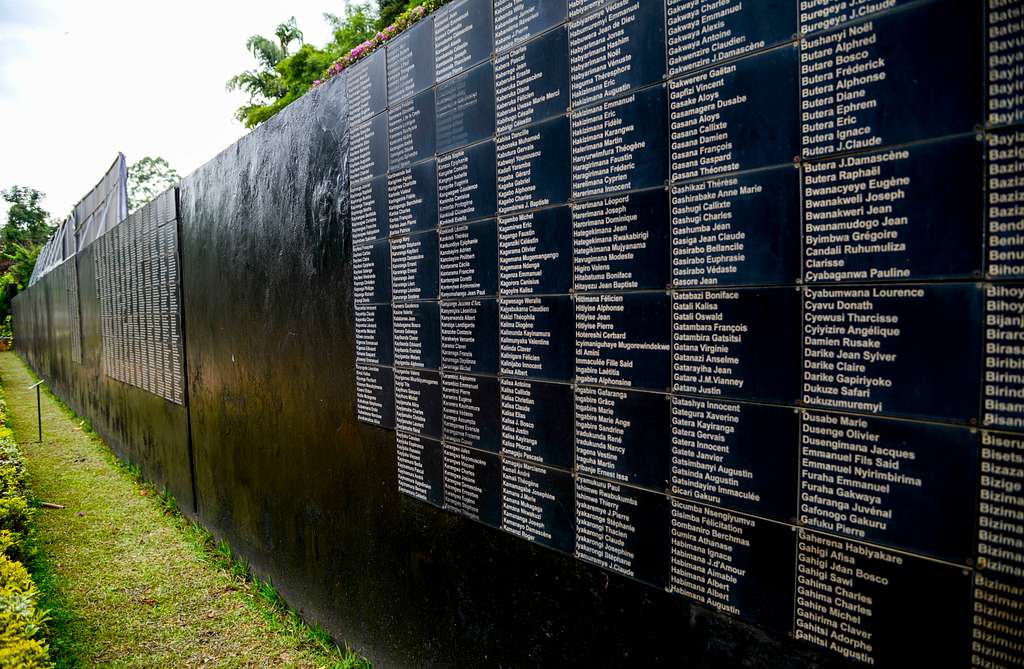
April marked the 30th anniversary of the Rwandan genocide, the deadliest genocide witnessed on the African continent, where over the span of just 100 days, about 800,000 people, primarily Tutsis but also moderate Hutus, were brutally murdered. In a significant development, the International Residual Mechanism for Criminal Tribunals is concluding its operations in Rwanda 29-years after the International Criminal Tribunal for Rwanda’s (ICTR) effort to deliver justice. The effectiveness of the ICTR and its Residual Mechanism contributed to the establishment of the International Criminal Court (ICC) in 2002. The ICC is the first permanent international institution dedicated to prosecuting atrocity crimes.
Ensuring justice and accountability is a crucial step in preventing such horrors from recurring and plays a key role in breaking the cycles of impunity, and although the international tribunals were set up to bring the main perpetrators to justice, Rwandan authorities are still seeking justice for about one thousand lower-level war crimes suspects. On this occasion, AWA’s co-founder and Chief Executive Officer, Dismas Nkunda reflects on the impact that Rwanda has had on him and the work of response and prevention of atrocity crimes.
The Rwandan genocide impacted Africa and the rest of the world, it served as a stark reminder of what we must work tirelessly to prevent. I entered Rwanda as a young journalist motivated by the need to document the ongoing atrocities, but I left as a humanitarian and human rights advocate. Rwanda was a turning point for me, not only in my career but in my personal life as well, experiencing such suffering firsthand brought out in me an unrefined and authentic aspect of my humanity where I was obliged to act and do what was in my power to help build preventive measures in response to the atrocities of genocide to try to deter something similar to ever happen again.
The violence did not come as a surprise, diplomats and human rights officials including international peacekeepers sounded the alarm. Early warning signals shed light on the potential for genocidal violence, yet the international community failed to intervene in time. Both US President Bill Clinton and UN Secretary-General Kofi Annan were informed about the extermination campaign in advance. The violence was palpable, just days after former president Juvénal Habyarimana’s plane was shot down about 110 people were killed at the Pallottine mission church, their identity cards burned, all identified as Tutsi. Polish peacekeepers present at the church during the Gikondo massacre were some of the first to bring attention to the gravity of the situation. In the following days, such events would grow frequent. By signing the Convention on the Prevention and Punishment of the Crime of Genocide, the international community showed their commitment to prevent and punish it, but when genocide broke out in Rwanda, they did not act. Local populations were left to fend for themselves. In 1998, the Organization of African Unity’s International Panel of Eminent Personalities found that the genocide could have been prevented had the international community acted decisively.
The biggest lesson learned was that the violence was preventable and this is a compelling case for the urgency of genocide prevention. The brutality of the violence left Africa and the world in shock and has left graphic and vivid reminders of its horrors. Even today, it stands as a haunting reference point for the unimaginable suffering humans can endure. Rwanda leaves us with the realisation that a similar event today would likely receive a different response, highlighting a shift in the world’s understanding. It is regrettable that available instruments were not effectively utilised in 1994.
Significant strides have been made in establishing a more robust normative and institutional framework for preventing and responding to genocide. The International Criminal Court (ICC) was born partly in response to both Rwanda and Yugoslavia; as was the incorporation of Article 4h into the African Union’s Constitutive Act, enshrining the right of the AU to intervene in cases of ongoing atrocities. These
institutions signify a clear shift, it sparked a movement that influenced not only regional institutions but also local and regional civil society organisations to dedicate resources to preventing such atrocities from happening again. The advancement of legal instruments like the Malabo Protocol which aims to establish mechanisms of criminal jurisdiction for mass atrocity crimes within the African Court of Justice and Human Rights, represents another positive step forward in this ongoing effort. While progress is evident, more resources and concerted efforts are needed to make the existing framework more robust and effective.
Genocide unfolds within a complex context and the key to prevention is addressing the existing early warning mechanisms aimed at alerting policymakers to the risk of atrocity and the need for action. Risks of atrocities are ongoing in various parts of Africa including the Horn of Africa, the Great Lakes and the Sahel, the global landscape remains of concern, with tensions evident in areas like Ukraine and Palestine conflicts. Are our intervention efforts adequate? I do not think so, but our acknowledgement of these realities is crucial. The escalating intensity of ongoing conflicts demands swift action to inform the world and strategise appropriate interventions accordingly.
Dismas is a widely respected human rights advocate who has made significant contributions to journalism and has shown unwavering commitment to preventing and responding to mass atrocity crimes in the continent. Starting his career as a journalist covering politics and conflicts in the Great Lakes region, including the tragic events of the 1994 Rwanda genocide, Dismas has consistently used his platform to shed light on human rights violations. His tireless efforts have played a crucial role in advancing the protection of fundamental human rights, promoting the rule of law, nurturing good governance, defending basic freedoms, and advocating for global justice.